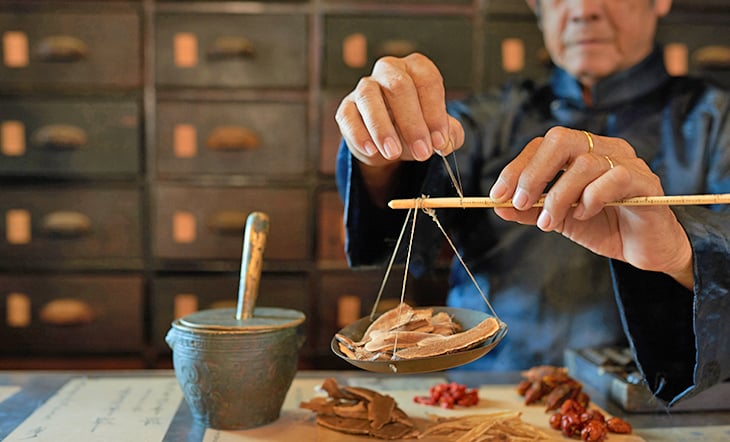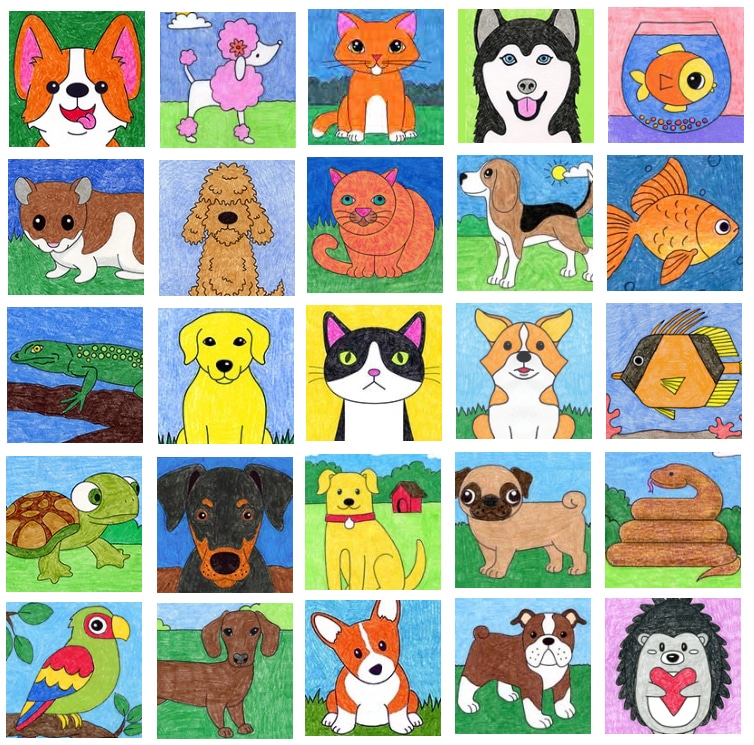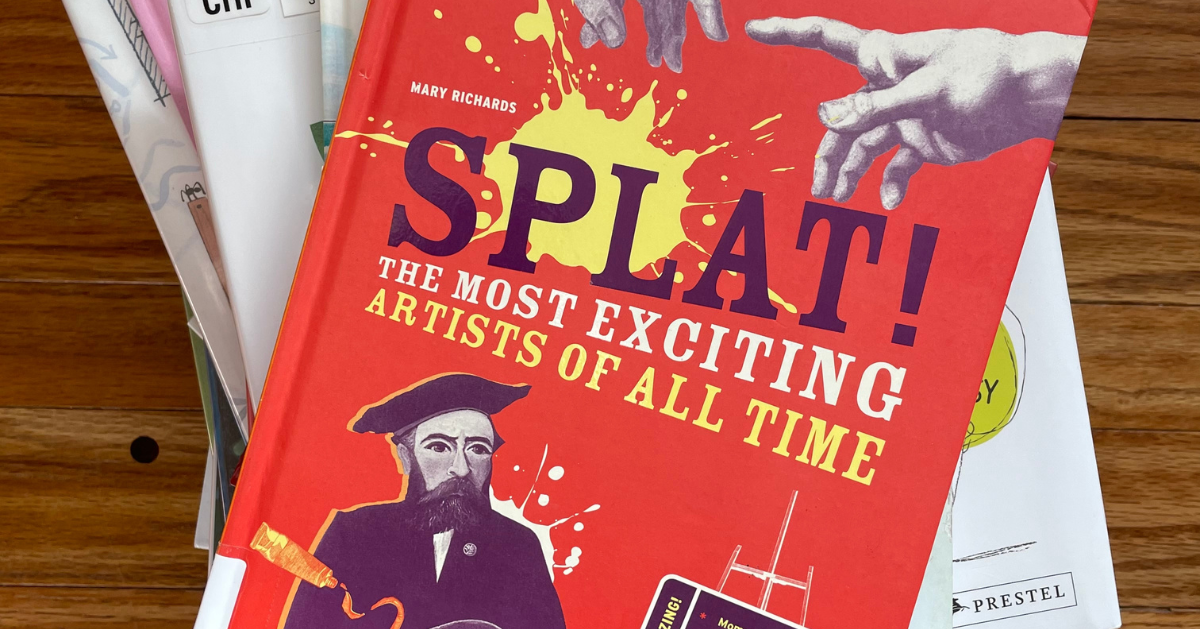
Traditional Chinese Medicine (or TCM) is a broad term used to refer to various practices including Chinese herbal medicine, cupping, acupuncture, Tui Na massage and moxibustion. TCM is a system of preserving health that is more than 2,000 years old that honors the mind, body and spirit as a whole.
The goal within Traditional Chinese Medicine is to maintain or restore harmony and balance all aspects of one’s being, as well as between one and one’s environment.
Traditional Chinese Medicine: health as wholeness.
This centuries old discipline helps improve whole-body vitality and can relieve certain types of chronic pain, such as neck and back pain, osteoarthritis/knee pain and carpal tunnel syndrome, as well as ease and prevent headaches. Studies show TCM improves balance, mood, energy levels, and overall wholeness.
In this article, we will review the roots of this ancient practice, how to restore the flow of energy through acupuncture, balancing the Five Elements in your life, as well as the importance of food and diet as it relates to TCM.
Also Read : Vegan Flatbread (Vegan Naan Recipe)
Traditional Chinese Medicine’s Roots: Yin-Yang and the Dao
Health is seen as a dynamic and ever-changing balance between Yin-Yang 阴阳, two equal, opposing and complementary forces responsible for the natural order of the universe and each individual’s well-being.
Imbalances in Yin-Yang manifest in the form of disease, discomfort or pain.
Yin-Yang is symbolic. One can cultivate it through the moving meditation practice Qigong, which balances softness with strength and stability with mobility.
Yet Yin-Yang also relates to tangible aspects of our experience – Xue 血, the nourishing, material quality of blood (including plasma, red and white blood cells) is Yin, while Qi 气, the invisible, pulsating, vital life force that underpins everything in the universe, is active, and thus Yang.
Jing, Jiyne and Shen form the essential substances within our being. Jing 精 (Vital Essence) is the fluid that nurtures growth and development. Jinye (津液) consists of other fluids like bile, mucus and saliva. Shen 神 (Spirit) are the intangible aspects of one’s existence which include higher consciousness and thoughts.
Meridian channels or vessels are a system of invisible rivers and streams that transport these essential substances to each organ system and throughout the body.
Though shown to be beneficial for treating disease, Traditional Chinese Medicine’s emphasis is to treat the disease before it appears, such as through practices of acupuncture or diet.
Want more on these concepts? Check out Qi, Meridians, Yin & Yang: An In-Depth Look at Acupuncture
Restore and Enhance Qi Flow With Acupuncture

According to John Hopkins Medicine, and a 2009 clinical study, the benefits of acupuncture have been demonstrated across various conditions, including:
- Chronic pain
- Osteoarthritis / knee pain
- Low-back pain
- Neck pain
- Headaches
- Women’s Health issues e.g. menstrual cramps, fertility issues
- Nausea caused by surgical anesthesia and cancer chemotherapy
- Carpal tunnel syndrome
- Asthma
Flow of Qi, and other essential substances can also be influenced or enhanced through moxibustion, Tui Na 推拿 (Chinese Massage), foot reflexology, fire cupping, and moving meditation practices such as Qi gong and Tai Chi.
What Is Qi Gong and How Does It Differ From Yoga and Tai Chi? 3 Ancient Practices Compared
To further demonstrate the importance of TCM as a prevention method, not as a means to treat disease, acupuncturist Deirdre Courtney says, in ancient China, physicians would only receive payment if their patients were healthy since the intent of Traditional Chinese Medicine was to safeguard health rather than simply treat disease.
Balancing the Five Elements Within and Without
Another important aspect of TCM is the balance of the Five Elements within your body.
Harmony with nature is described by the Five Elements Wuxing 五行, which details the energetics and relationships of all beings and matter around us.
The goal within Traditional Chinese Medicine is to maintain or restore harmony and balance.
Each of the Elements – Wood, Fire, Earth, Metal and Water – are associated with specific energetic qualities, and manifest as organs and meridian channels, tastes, colors, emotions, sounds, seasons and foods, a reminder that our material and immaterial world are related to and influence each other.
Food as Energy: Traditional Chinese Medicine Herb and Food Energetics

Furthermore, attention is paid to the taste or nutritional content, as well as the healing and energetic properties of foods and herbs when combined together. Taking nourishing soups and teas with herbs and ingredients for specific health benefits are commonplace in Traditional Chinese Medicine, including these:
- Lotus Root and Black Bean Soup: Strengthens the spleen and kidneys
- Cordyceps Flower and Black Chicken Soup: Nourishes the lungs, reduces fatigue, tonifies kidneys and liver while boosting one’s immunity
- Ginger, Red Date and Longan tea: Promotes blood circulation and thus especially beneficial for menstruating women to promote healthy Qi, soothes period cramps and alleviates cold hands and feet
5 Holistic Ways to Strengthen Your Lungs, According to Traditional Chinese Medicine
Final Thoughts on Traditional Chinese Medicine
Since our lifestyle heavily influences our health, aside from diet, improving lifestyle habits like adjusting one’s activities and sleep times based on the meridian clock are beneficial and commonly recommended by TCM physicians. Based on one’s situation, one might also be recommended these other treatments:
- Moxibustion helps warm the meridians, stimulate Qi flow, dispel cold and dampness, and strengthen the immune system
- Tui Na 推拿 massage helps boost Qi flow and is an effective therapy for arthritis, pain, sciatica and muscle spasms
TCM is an ancient discipline and can help your vitality and wholeness. If you have a health condition, talk with your health care provider before using Traditional Chinese Medicine herbal products. Avoid using TCM to replace or delay seeking conventional care.
All included information is not intended to treat or diagnose. The views expressed are those of the author and should be attributed solely to the author. For medical questions, please consult your healthcare provider.






dapatkan akses bermain game online terbaik hanya di situs kami pandawara4d yang sudah terkenal terpercaya dan terbaik.
KONTOL
hallo teman-teman Kunjungi situs kami sekarang juga, agar anda mendapatkan situs terbaik dalam bermain judi online togel dan slot.
pandawara4d slot adalah tempat login pandawara4d slot terbaru dan terpercaya di indonesia sejak tahun 2025, ayo daftar sekarang juga bersama pandawara4d daftar.